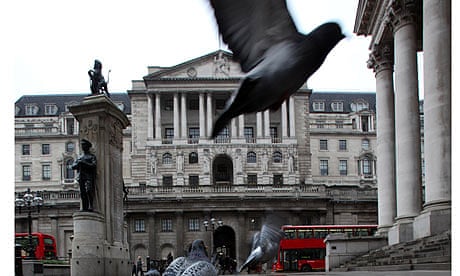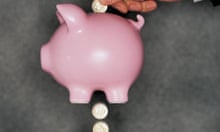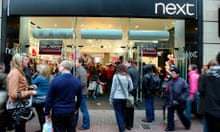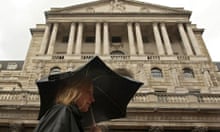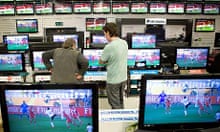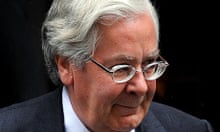No two ways about it: today's inflation figures were dreadful. After a run of bad figures over the past 12 months, the City was braced for bad news, but not this bad.
It wasn't just that the annual rate rose from November's 3.3%. It was that the increase to 3.7% was worse than even the pessimists had feared, that the increase in prices was across the board, and that there is now growing pressure on the Bank of England to respond by raising interest rates.
Howard Archer, economist at IHS Global Insight, was right on the money when he borrowed a phrase from Sir Alex Ferguson and said it was "squeaky bum time" for Threadneedle Street's monetary policy committee, which faces a choice between leaving rates at 0.5% and risking inflation becoming embedded or jacking up the cost of borrowing and risking a double-dip recession.
First, though, a few points about the numbers themselves. There were the expected increases in petrol, food and domestic energy bills last month, but more worryingly there were also increases in household goods prices despite the impact of December's "big freeze" on consumer footfall early in the month. For the past few months, it has always been possible to find a silver lining to the looming inflation cloud, but it was hard to do so today.
The Office for National Statistics provides data for so-called core inflation, which strips out the impact of food and energy prices from the cost of living, and this rose from 2.7% to 2.9% last month. For some time, the Bank has been taking comfort from the fact that inflation has been above target because of increases in indirect taxes such as VAT and excise duties. But inflation excluding indirect taxes rose from 1.6% to 2% in December.
Nor is this going to be the end of the bad news. VAT went up to 20% this month and oil prices are close to $100 a barrel. It now looks odds-on that inflation as measured by the consumer prices index will go above 4% when the January figures are released next month.
The big question is what the Bank chooses to do about it. Up until now, the majority of the MPC have taken the view that the increase in inflation is a temporary phenomenon, caused by a weak pound, higher VAT and the surge in global commodity prices. Unless retailers are able to pass on increases in costs to their customers and workers are able to secure higher pay deals to compensate for rising prices, the expectation is that inflation will fall back below the government's 2% target in 2012.
This is still a defensible argument, despite today's figures. There seems little likelihood, with the labour market weak, that unions are going to be able to negotiate pay deals of 4% over the coming months, and unless they do the impact of a rising cost of living will be deflationary rather than inflationary, through its impact on the spending power of consumers. Taxes are rising and public spending is being squeezed, so the Bank will be worried – quite rightly – that putting up interest rates will amount to overkill.
But all that said, the call for action is intensifying from those who say the Bank is in danger of losing its anti-inflation credibility. In 2010, inflation was more than a percentage point above target in every month bar one, and the City is now pricing in a rate rise this spring. The Bank's credibility would, of course, also take a serious hit if it was panicked into a rate increase it thought needless and thereby pushed the economy back into recession.
